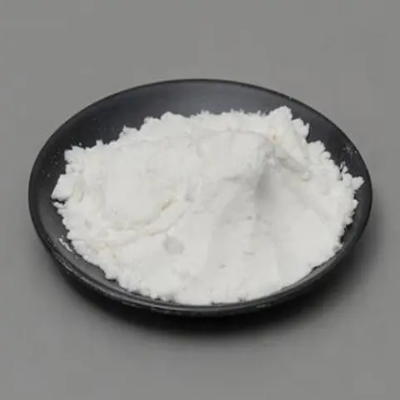ACETONYLTRIPHENYLPHOSPHONIUM CHLORIDE CAS:1235-21-8
Acetonyltriphenylphosphonium chloride is utilized extensively in organic synthesis due to its versatility as a reagent and catalyst. One of its primary applications is in the formation of ylides, which are essential intermediates in several organic reactions, such as the Wittig reaction. In this reaction, ylides generated from acetonyltriphenylphosphonium chloride can facilitate the conversion of carbonyl compounds into alkenes, thereby playing a critical role in the synthesis of numerous pharmaceuticals and natural products. In addition to its role in ylide chemistry, acetonyltriphenylphosphonium chloride is effective in promoting nucleophilic substitution reactions. The presence of the triphenylphosphonium group increases the electrophilicity of the acetonyl group, making it a more reactive substrate for various nucleophiles. This property allows for the efficient formation of carbon-carbon and carbon-heteroatom bonds, which are essential in constructing complex organic architectures. Moreover, this compound finds applications in catalysis, particularly in reactions that require high selectivity and mild conditions. Its stable triphenylphosphonium cation can act as a catalyst or catalyst precursor, enhancing the efficiency of several chemical transformations. This capability is especially valuable in processes where harsh conditions are undesirable, helping to minimize by-products and improve the overall yield of the desired product. Acetonyltriphenylphosphonium chloride also has potential applications in materials science. Researchers are exploring its use in the synthesis of functionalized polymers, where it can impart specific properties such as enhanced thermal stability or tailor the polymer's solubility. These modified materials can be used in coatings, adhesives, and other advanced applications. Furthermore, in the realm of green chemistry, acetonyltriphenylphosphonium chloride can be employed to develop environmentally-friendly synthetic protocols. By enabling more efficient reactions and reducing waste, this compound aligns with the principles of sustainable chemistry, promoting practices that are more considerate of environmental impact. In summary, acetonyltriphenylphosphonium chloride is a valuable compound in organic synthesis and catalysis, facilitating the formation of key intermediates, promoting selective reactions, and contributing to advancements in materials science and green chemistry. Its diverse applications underscore its importance in modern chemical research and industry.



Acetonyltriphenylphosphonium chloride is utilized extensively in organic synthesis due to its versatility as a reagent and catalyst. One of its primary applications is in the formation of ylides, which are essential intermediates in several organic reactions, such as the Wittig reaction. In this reaction, ylides generated from acetonyltriphenylphosphonium chloride can facilitate the conversion of carbonyl compounds into alkenes, thereby playing a critical role in the synthesis of numerous pharmaceuticals and natural products. In addition to its role in ylide chemistry, acetonyltriphenylphosphonium chloride is effective in promoting nucleophilic substitution reactions. The presence of the triphenylphosphonium group increases the electrophilicity of the acetonyl group, making it a more reactive substrate for various nucleophiles. This property allows for the efficient formation of carbon-carbon and carbon-heteroatom bonds, which are essential in constructing complex organic architectures. Moreover, this compound finds applications in catalysis, particularly in reactions that require high selectivity and mild conditions. Its stable triphenylphosphonium cation can act as a catalyst or catalyst precursor, enhancing the efficiency of several chemical transformations. This capability is especially valuable in processes where harsh conditions are undesirable, helping to minimize by-products and improve the overall yield of the desired product. Acetonyltriphenylphosphonium chloride also has potential applications in materials science. Researchers are exploring its use in the synthesis of functionalized polymers, where it can impart specific properties such as enhanced thermal stability or tailor the polymer's solubility. These modified materials can be used in coatings, adhesives, and other advanced applications. Furthermore, in the realm of green chemistry, acetonyltriphenylphosphonium chloride can be employed to develop environmentally-friendly synthetic protocols. By enabling more efficient reactions and reducing waste, this compound aligns with the principles of sustainable chemistry, promoting practices that are more considerate of environmental impact. In summary, acetonyltriphenylphosphonium chloride is a valuable compound in organic synthesis and catalysis, facilitating the formation of key intermediates, promoting selective reactions, and contributing to advancements in materials science and green chemistry. Its diverse applications underscore its importance in modern chemical research and industry.









